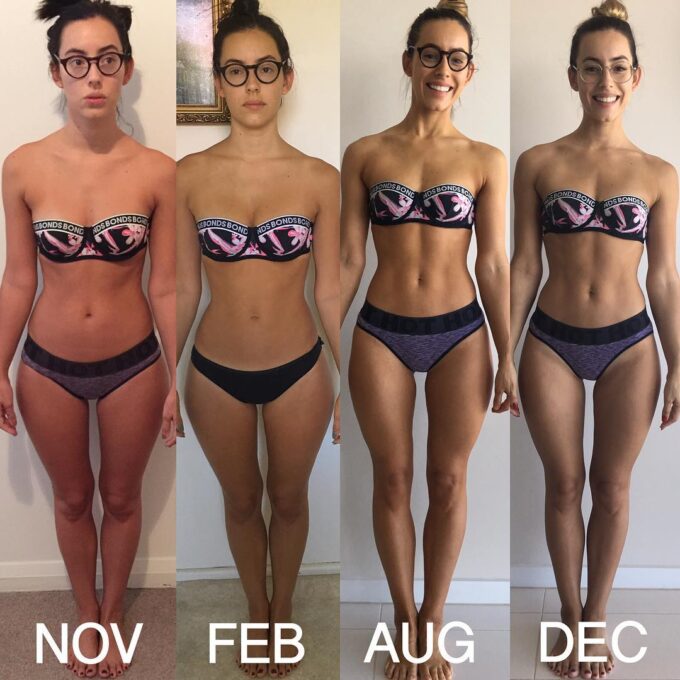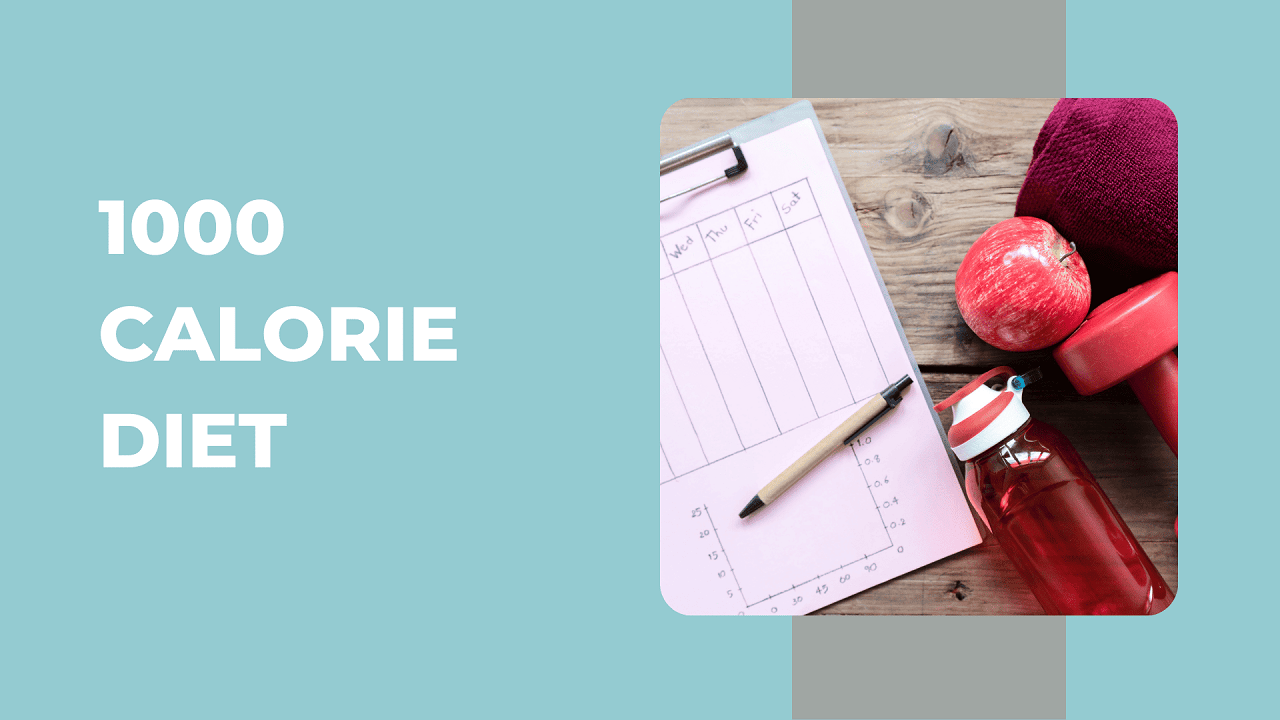1000 Calorie Diet Plan
Contents
- 1 1000 Calorie Diet Plan
- 2 Shedding Pounds in a Hurry: The Science Behind the 1000 Calorie Diet
- 3 The Allure of the 1000 calorie Diet: Potential Benefits
- 4 The Other Side of the Coin: Potential Drawbacks of the 1000 calorie Diet
- 5 Making it Work (Safely): Essential Tips for the 1000 calorie Diet
- 6 Sample Meal Plan (1000 calories): A Day on the Plate
- 7 Exercise and the 1000 calorie Diet: A Perfect Match?
- 8 Building Sustainable Habits: Long-Term Success Beyond the 1000 calorie Diet
- 9 The Final Verdict: Is the 1000 calorie Diet Right for You?
- 10 FAQs: Addressing Your Burning Questions about the 1000 calorie Diet
- 11 References
The 1000 calorie diet has become a popular buzzword for rapid weight loss. With its promise of quick results, it’s no wonder people are intrigued. But before you dive headfirst into this restrictive plan, let’s take a deep dive into its pros, and cons, and how to approach it safely and effectively.
Shedding Pounds in a Hurry: The Science Behind the 1000 Calorie Diet
Our bodies function like complex machines, constantly burning calories for energy. When we consume fewer calories than we burn (creating a calorie deficit), our bodies tap into stored fat reserves for fuel. This is the fundamental principle behind all weight loss strategies like 1600 calorie high protein meal plans, and the 1000 calorie diet takes it to an extreme. By significantly restricting calorie intake, the body is forced to burn fat at an accelerated rate, leading to faster weight loss on the scale.
The Allure of the 1000 calorie Diet: Potential Benefits

There’s a reason the 1000 calorie diet has gained popularity. Here are some of its attractive features:
- Rapid Weight Loss: Let’s face it, most people looking to shed pounds want to see results quickly. The 1000 calorie diet often delivers on this promise, with individuals experiencing noticeable weight loss within a short period.
- Portion Control Powerhouse: Sticking to such a low-calorie intake requires meticulous attention to portion sizes. This can be a valuable skill for long-term healthy eating habits, teaching you to measure food and avoid overeating.
- Simplicity at its Finest: There’s no calorie counting app or complicated food group elimination involved. The basic rule is clear: consume 1000 calories a day. This straightforward approach can be appealing to those who dislike complex dietary plans.
The Other Side of the Coin: Potential Drawbacks of the 1000 calorie Diet
While the rapid weight loss might be tempting, the 1000 calorie diet comes with significant drawbacks that shouldn’t be ignored:
- Nutrient Deficiencies on the Horizon: When you drastically cut calories, it becomes challenging to consume all the essential vitamins, minerals, and other nutrients your body needs. This can lead to fatigue, weakness, headaches, and even impair your immune system.
- The Hangry Struggle is Real: Subsisting on 1000 calories is no picnic. Expect to experience hunger pangs, cravings, and irritability. This can make it difficult to stick to the diet and may lead to unhealthy food choices in the long run.
- Unsustainable for the Long Haul: Rapid weight loss is often followed by an equally rapid regain when people return to their usual eating patterns. The extreme calorie restriction can disrupt your metabolism, making it harder to maintain weight loss over time.
Making it Work (Safely): Essential Tips for the 1000 calorie Diet

If you’re still considering the 1000 calorie diet, here are some crucial steps to maximize safety and effectiveness:
- Consult Your Doctor First: This diet isn’t suitable for everyone. Underlying health conditions, medications, and pregnancy all necessitate a doctor’s guidance before embarking on such a restrictive plan.
- Nutrient-Dense Foods are Your Allies: Every calorie counts! Make those 1000 calories work for you by prioritizing nutrient-rich choices. Focus on lean protein sources like grilled chicken or fish, whole grains like brown rice or quinoa, a variety of colorful fruits and vegetables, and healthy fats like avocado or nuts.
- Hydration is Key: Drinking plenty of water throughout the day keeps you feeling full, reduces hunger pangs, and flushes out toxins. Aim for eight glasses of water daily, adjusting based on your activity level and climate.
- Listen to Your Body: Don’t be a slave to the scale. Pay attention to your body’s hunger and fullness cues. If you’re excessively hungry, fatigued, or experiencing headaches, it might be a sign you need to increase your calorie intake.
Sample Meal Plan (1000 calories): A Day on the Plate

Here’s a sample meal plan to give you a better idea of how to structure your day within the 1000 calorie limit:
- Breakfast (300 Calories): 1 whole-wheat toast with 1 tablespoon of almond butter, 1 small apple, and 1 cup of unsweetened almond milk. This provides protein and fiber for sustained energy.
- Mid-Morning Snack (150 Calories): A handful of almonds (around 10) with a small pear. Almonds are a good source of healthy fats and protein
- Lunch (300 Calories): Grilled chicken breast (3 oz) on a bed of mixed greens with a light lemon vinaigrette dressing. Add in a half cup of quinoa for a complete protein and complex carbohydrate source.
- Afternoon Snack (150 Calories): Baby carrots with a dollop of hummus (around 1/2 cup). This snack provides fiber and healthy fats to keep you feeling satisfied until dinner.
- Dinner (300 Calories): Baked salmon fillet (3 oz) with 1 cup of steamed broccoli and a half cup of brown rice. Salmon is rich in omega-3 fatty acids, beneficial for heart health, while broccoli adds essential vitamins and fiber.
Remember, this is just a sample plan. You can adjust it based on your preferences and dietary needs. Focus on incorporating a variety of nutrient-dense foods from all food groups.
Exercise and the 1000 calorie Diet: A Perfect Match?

Exercise is a crucial component of any weight loss plan, and the 1000 calorie diet is no exception. However, with such a restricted calorie intake, it’s essential to be mindful of your exercise choices:
- Focus on Low-Intensity Activities: Strenuous exercise can be demanding on your body when you’re consuming only 1000 calories. Opt for activities like brisk walking, yoga, swimming, or light cardio.
- Listen to Your Body: Don’t push yourself too hard. If you feel dizzy, lightheaded, or overly fatigued during exercise, take a break or reduce the intensity.
- Prioritize Recovery: Give your body adequate rest and recovery time between workouts. This allows your muscles to repair and rebuild, which is essential for continued progress.
Building Sustainable Habits: Long-Term Success Beyond the 1000 calorie Diet
While the 1000 calorie diet might offer a jumpstart for weight loss, it’s not a sustainable solution for most people. Here’s how to transition from this restrictive plan to a healthy lifestyle that promotes lasting weight management:
- Gradual Calorie Increase: Gradually increase your daily calorie intake (around 100-200 calories per week) until you reach a sustainable level that supports your weight loss goals and activity level.
- Focus on Whole, Unprocessed Foods: Make whole, unprocessed foods the foundation of your diet. These foods are naturally more filling and provide essential nutrients your body needs to thrive.
- Mindful Eating Practices: Develop mindful eating habits. Eat slowly, savor your food, and pay attention to your body’s hunger and fullness cues. Stop eating when you’re comfortably full, not stuffed.
- Incorporate Regular Physical Activity: Find physical activities you enjoy and make them a regular part of your life. Aim for at least 30 minutes of moderate-intensity exercise most days of the week.
The Final Verdict: Is the 1000 calorie Diet Right for You?
The 1000 calorie diet can be a risky proposition. While it may lead to rapid weight loss, the potential for nutrient deficiencies, intense hunger, and an unsustainable approach make it a less-than-ideal choice for long-term success.
Here are some alternatives to consider:
- Consult a Registered Dietitian: A registered dietitian can create a personalized weight loss plan that is safe, effective, and sustainable for you. They can help you incorporate nutritious foods and ensure you’re meeting your body’s needs.
- Explore Mediterranean Diet: The Mediterranean diet emphasizes fruits, vegetables, whole grains, healthy fats, and lean protein. This balanced approach promotes healthy weight loss and overall well-being.
- Mindful Eating Practices: Focus on developing mindful eating habits. This can help you manage portion sizes, make healthier choices, and create a more sustainable approach to weight management.
Remember, the key to successful weight loss is creating a healthy lifestyle you can maintain over time. By focusing on nutritious foods, regular physical activity, and mindful eating practices, you can achieve your weight loss goals and improve your overall health.
FAQs: Addressing Your Burning Questions about the 1000 calorie Diet
- Is the 1000 calorie diet suitable for everyone?
No, the 1000 calorie diet is not recommended for everyone. People with certain health conditions, pregnant or breastfeeding women, and individuals under 18 should avoid this restrictive approach.
- How much weight can I expect to lose on a 1000 calorie diet?
Weight loss can vary depending on several factors, including your starting weight, activity level, and metabolism. However, you might see a quick drop on the scale initially.
- Are there any potential health risks associated with the 1,00 Can I exercise while following a 1000 calorie diet?
Yes, you can exercise while following a 1000 calorie diet, but with caution. Here’s what to keep in mind:
Focus on Low-Intensity Activities: Stick to exercises like walking, swimming, yoga, or light cardio. These activities are easier on your body when calorie intake is restricted.
Listen to Your Body: Pay close attention to how you feel during exercise. If you experience dizziness, lightheadedness, or extreme fatigue, stop the activity and rest.
Prioritize Recovery: Ensure adequate rest and recovery time between workouts. This allows your muscles to repair and rebuild, which is crucial for progress.
- What are some common pitfalls to avoid when following a 1000 calorie diet?
Here are some common pitfalls to be aware of:
Ignoring Hunger Cues: Don’t try to push through intense hunger pangs. This can lead to overeating later or unhealthy food choices.
Not Drinking Enough Water: Dehydration can mimic hunger pangs. Staying hydrated throughout the day helps curb cravings and keeps you feeling full.
Skipping Meals: Skipping meals can disrupt your metabolism and lead to overeating at the next meal. Aim for smaller, more frequent meals throughout the day.
Focusing Solely on the Scale: Weight loss isn’t just about the number on the scale. Focus on how you feel, your energy levels, and how your clothes fit.
Unrealistic Expectations: Don’t expect to maintain this rapid weight loss forever. The 1000 calorie diet is meant for a short-term jumpstart, not a long-term solution.
- Are there any supplements I should take while on a 1000 calorie diet?
While a multivitamin can help ensure you’re getting some essential nutrients, it’s not a substitute for a balanced diet. It’s always best to consult with a healthcare professional before taking any supplements, especially while on a restrictive diet plan.
- I followed the 1000 calorie diet for a week and gained weight. Why?
There could be a few reasons for this. Weight loss isn’t always linear. Water weight fluctuations can cause temporary weight gain. Additionally, if your calorie intake was too low, your body might have entered “starvation mode,” slowing your metabolism to conserve energy. This can actually hinder weight loss efforts.
- What can I do if I feel faint or dizzy on the 1000 calorie diet?
This could be a sign that your calorie intake is too low or that you’re not getting enough electrolytes. Stop the diet and consult with a healthcare professional immediately. They can advise you on a safe approach to weight loss and ensure you’re meeting your nutritional needs.
Remember, the 1000 calorie diet is a drastic approach to weight loss. It’s crucial to prioritize your health and well-being. If you experience any negative side effects, discontinue the diet and consult with a healthcare professional for personalized guidance.
References
- National Institutes of Health (NIH): https://www.nih.gov/ – This is the US government’s premier biomedical research agency and provides science-backed info on weight loss and healthy eating.
- Academy of Nutrition and Dietetics: https://www.eatright.org/ – The leading organization for food and nutrition professionals, offering reliable resources on healthy weight management.
- Mayo Clinic: https://www.mayoclinic.org/ – A world-renowned nonprofit medical center with a great patient education section on healthy weight loss strategies.
- Harvard Health Publishing: https://www.health.harvard.edu/ – Part of Harvard Medical School, this website offers evidence-based information on healthy eating and weight loss.
- American Heart Association: https://www.heart.org/ – A leading cardiovascular health organization with resources on healthy weight management for heart health.
- Centers for Disease Control and Prevention (CDC): https://www.cdc.gov/healthyweight/index.html – The US government’s health protection agency with science-based information on healthy weight and calorie intake.
- World Health Organization (WHO): https://www.who.int/news-room/fact-sheets/detail/healthy-diet – The leading international health agency with resources on healthy diets and weight management for global populations.
- American College of Sports Medicine (ACSM): https://www.acsm.org/ – A leading organization dedicated to exercise science with resources on combining exercise with healthy eating for weight management.
- The Obesity Society: https://www.obesity.org/ – A professional organization for obesity research and treatment with resources on healthy weight management.
- U.S. Department of Agriculture (USDA): https://www.myplate.gov/ – The US government’s department of agriculture provides resources on healthy eating patterns and calorie intake for different age groups.

